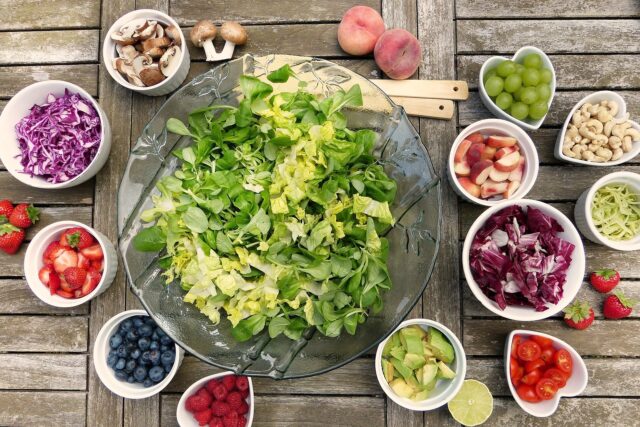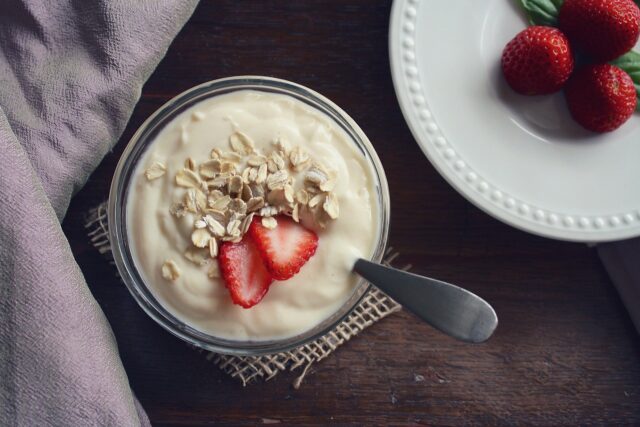1st August 2020
By Liz Connor
It’s common knowledge that obesity raises your risk of many serious health conditions – like diabetes, heart disease and certain cancers – but a new study has revealed that people who carry unhealthy excess body fat earlier in life, could be putting their brain at risk too.
Researchers from Columbia University studied data on more than 5,000 adults and found that people who are overweight may be more prone to dementia in later life. The study revealed that those aged 20 to 49 who have a high body mass index are up to 2.5 times as likely to go on to develop dementia.
Dr Rosa Sancho, head of research at Alzheimer’s Research UK, said: “[The] study links a higher BMI in early adulthood with an increased risk of dementia later in life and underlines the importance of maintaining a healthy weight to help support a healthy brain.”

Just as your body changes over time, so too do the strategies that can help you to stay trim and healthy. We asked health experts to give us decade-specific tips for fighting fat and keeping your BMI within a healthy weight range.
1. In your 20s, you should… cut out the liquid calories
No matter how virtuous you are with your diet, binge drinking at the weekend can contribute to weight gain and obesity, as well as putting you at risk of long-term health issues, like high blood pressure, heart disease and stroke.
“Your 20s are generally a time for socialising. It’s when many youngsters have left home, have started out on their career path and are meeting up with friends at the pub,” says Rob Hobson, head of nutrition for Healthspan (healthspan.co.uk).
He continues: “Alcohol is a diet hijacker and can lead to rapid weight gain.” For instance, a standard pint of beer contains 239 calories, and a 175ml glass of wine contains 133, according to NHS figures.
“A simple solution is to water down drinks and look for sugar-free, non-alcohol alternatives. I’d particularly recommend avoiding sugary mixers, as these can be loaded with hidden calories,” Hobson adds. A leading brand of tonic, for example, contains 10 times the calories of its slimline version.

2. In your 30s, you should… opt for low-fat alternatives
When you were 23, you might have been able to survive on a diet of takeaway foods and still comfortably slip into your jeans, but now, it will probably take a little bit of extra work to stay slim.
“Lots of people are focused on losing weight in their 30s,” observes Hobson. “It could be that you’re trying to lose some post-pregnancy weight, or just that your metabolism has gradually slowed down over time.”
Hobson says that the key in this age bracket is to build a slow and steady approach to weight loss – “utilising simple changes is the best way to lose weight, rather than crash diets”, he notes.
His top tips are to switch to low-fat options and swap to whole grain foods, to reduce your sugar intake.
“In your 30s, it’s also a good idea to learn a few basic meal-planning strategies, or quick healthy meals that you know you love,” adds David Wiener, training specialist at Freeletics (freeletics.com). “This can help you minimise food prep time and maximise the nutrient-rich foods that keep you lean and boost your energy – even when you’re on the go.”
And if you’ve never stepped foot on a treadmill before, it’s probably a good time to invest in a gym membership. “You might start to notice small changes to your body that weren’t there in your 20s, so think about reaping the toning benefits of exercising more, especially if you generally live a sedentary lifestyle,” adds Hobson.
3. In your 40s, you should… have healthy snacks on hand
Juggling family life and more career responsibilities can cause stress for many people in their 40s, warns Hobson, who adds: “This is often a time when we’re more likely to turn to comfort or emotional eating, to deal with the pressures of big life changes.”
His solution is to keep healthy snacks in your kitchen, such as nuts, seeds, fruits and chopped vegetables, so you won’t be tempted by sugary cakes and biscuits – which are fine in moderation, but add little nutritional value to your diet.
Because we’re spending a lot more time at home at the moment, it can be easy to snack more than usual, so why not use your recouped commuting time to prep some homemade cupboard staples?
You could bake your own energy bars or whizz up some chickpeas, garlic, oil and lemon juice for a healthy hummus dip.
“Alongside a healthier diet, I’d recommend finding strategies to manage the stress and anxiety that leads to comfort eating,” says Hobson.
This could be taking time to exercise, getting enough restful sleep, cutting down on alcohol or trying wellbeing tools, like meditation and yoga.
(PA)




